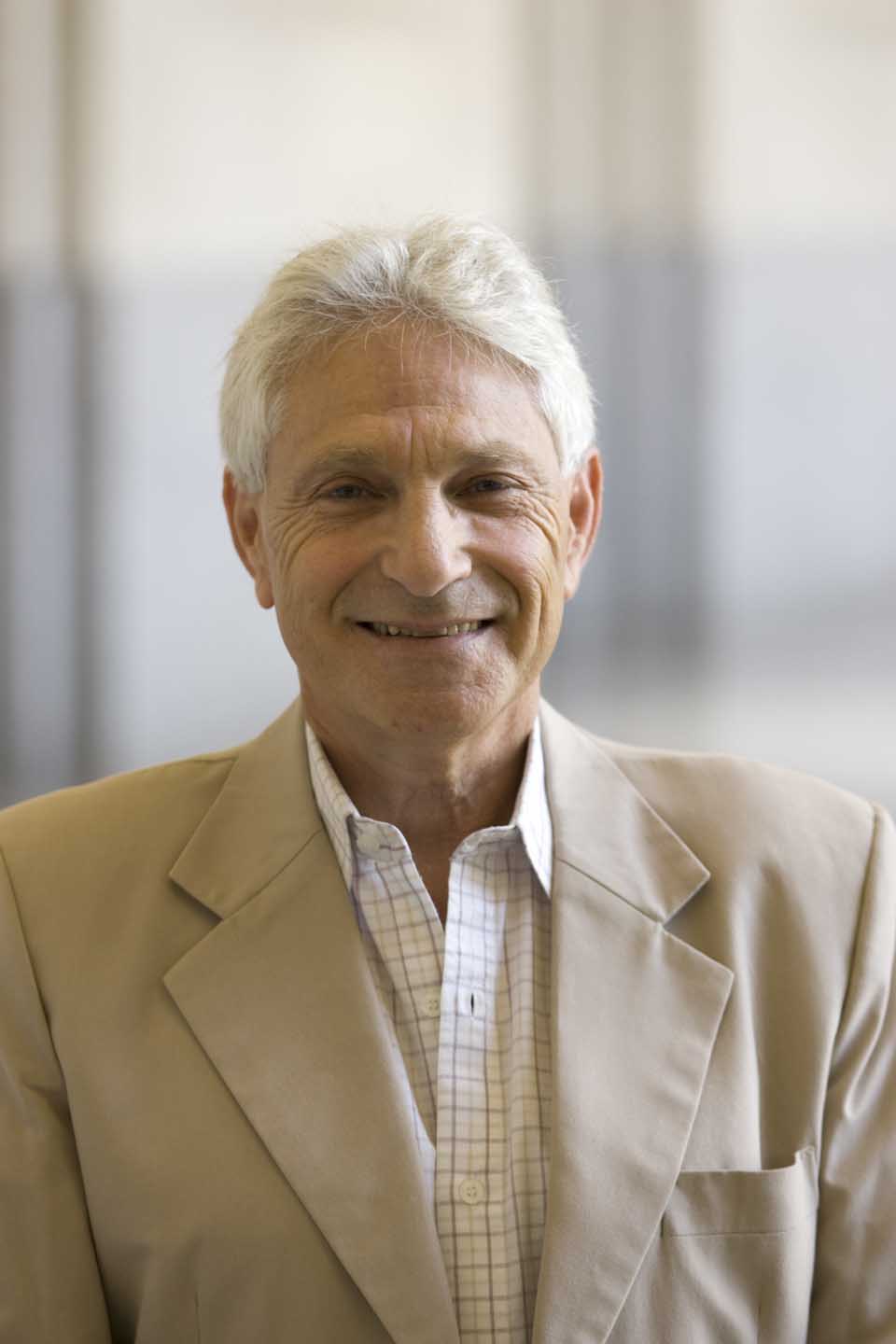Contents:
- A new IMF deal with Lebanon could bring some much-needed relief
- What happens in the Middle East doesn’t stay in the Middle East
- The constitution scored a big victory, but Pakistan’s political order remains in peril
- Tunisia’s President Kais Saied heading down a perilous path
- No majority, no minority in Israel
A new IMF deal with Lebanon could bring some much-needed relief
Randa Slim
Senior Fellow and Director of Conflict Resolution and Track II Dialogues Program

On April 7, the International Monetary Fund (IMF) and the Government of Lebanon announced a preliminary staff-level agreement that could potentially release a $3 billion assistance package to Lebanon over a 46-month period. While still a preliminary agreement, it ends any debate among Lebanese political and business leaders over the necessity of an IMF deal — even if its potential contents remain contested — to alleviate Lebanon’s economic woes.
The implementation of the deal is contingent on Lebanon’s meeting a series of strict conditions including a financial sector restructuring, a new banking secrecy law, standardized exchange rates, and reforms to state-owned enterprises such as the chronically malfunctioning energy sector which has been draining public resources for decades. If an IMF deal were eventually to be implemented, it could unlock the $11 billion in foreign assistance pledged to Lebanon at the 2018 CEDRE Conference. Those pledges were also conditioned on reforms similar to the ones called for in the IMF agreement.
It is highly doubtful Lebanon’s parliament has the will or the time to enact these demands prior to the May 15 elections. Pending legislation that features a capital control law, and the 2022 budget might be approved by the parliament prior to the May 15 elections. If what’s past is prologue, government formation following the elections will likely drag on, leaving the country in a limbo with the caretaker government and the parliament unable to take action on the conditions of the IMF agreement.
Critics of the agreement are already lining up. Opposition groups are arguing the agreement inked one month before the parliamentary elections puts a feather in the political oligarchy’s cap for them to show off during electoral campaigns. Civil society groups are raising concerns about the social outcomes of the deal especially because of the prospect of new austerity measures and cuts to social welfare programs. The Association of Banks in Lebanon is expected to mount stiff opposition to a proposal that would require the banking sector to shoulder a major share of the estimated 70 billion dollar losses in the sector. To date, Lebanese banks insist that the government and the central bank be held responsible for the majority share of the losses.
Follow on Twitter: @rmslim
What happens in the Middle East doesn’t stay in the Middle East
Brian Katulis
Vice President of Policy

The news that Russia has appointed a new general in Ukraine who presided over many of the brutalities committed in Syria is a vivid reminder that what happens in the Middle East doesn’t stay there. Simply wishing away violence, strife, and instability in the Middle East imposes longer-term costs that transcend that part of the world.
General Alexander Dvornikov, the new Russian commander in Ukraine, was Russia’s commander in Syria in 2015 and 2016, when Russia backed the Syrian government led by Bashar al-Assad at a time when it was using chemical weapons against the Syrian people and conducting a scorched-earth campaign in places like Aleppo. As the world watches the unfolding of a new phase in Russia’s war against Ukraine and winces at its mounting human costs, we should remember that this moment in Ukraine was brought to us in part by all of those who shrugged their shoulders over what has happening Syria and argued that the United States should exercise “restraint” in the Middle East.
The Obama and Trump administrations adopted fundamentally different approaches to a number of key Middle East questions including Iran, the Israeli-Palestinian conflict, and ties with close partners. But the one thing these two administrations shared was a perspective that the United States needs to lessen its engagement across the Middle East and pivot to other regions of the world or just focus on problems at home. As a result, the United States has been a less than reliable strategic partner across the Middle East.
More than one year into office, the Biden administration has thus far focused on other pressing challenges – the pandemic, climate change, China, and now Russia’s war in Ukraine. But the linkage between what happened in Syria over the past decade and what’s happening now in Ukraine should prompt the United States to devise plans for deepening its engagement in the Middle East with a focus on diplomacy backed by a more balanced security strategy. A strategic reengagement in the Middle East may seem far-fetched given all that America has on its plate, but on key fronts there are certainly ways to strengthen diplomatic and security cooperation with the goal of heading off wider problems in the future:
- In Syria, the United States should prioritize freezing the conflict and using aid more strategically to support stabilization and rebuilding in areas free of the Assad regime’s rule. Charles Lister made the case for this new approach in this recent MEI policy memo.
- In Lebanon, America can step up its diplomatic and economic engagement to support the Lebanese people and help them hold their leaders more accountable for delivering results in governance, as this recent policy analysis by the Middle East Institute and the American Task Force on Lebanon argued.
- In Yemen, the United States should step up its diplomatic engagement to support a sustainable resolution to the conflict and start to lay the groundwork for post-conflict reconstruction. Gerald M. Feierstein, former U.S. ambassador to Yemen and a distinguished senior fellow at MEI, outlined a game plan in this recent policy memo.
- Russia’s war against Ukraine has impacted U.S. ties with key partners in Gulf Cooperation Council (GCC) countries, with the multipolarity of the international system reinforcing some skepticism about America’s role in the Gulf region. Feierstein, along with MEI scholars Bilal Y. Saab and Karen E. Young, offered an analysis combined with a set of recommendations for enhancing U.S. diplomatic, security, economic, and energy cooperation in this MEI policy memo.
The United States has its hands full with Russia’s war in Ukraine and challenges in other corners of the world. But dedicating more of its focus to a realistic and practical engagement in the Middle East will help stabilize current crises and stave off brewing ones.
Follow on Twitter: @Katulis
The constitution scored a big victory, but Pakistan’s political order remains in peril
Marvin G. Weinbaum
Director, Afghanistan and Pakistan Studies

Imran Khan’s political adversaries finally ousted him as prime minister. In a no-confidence vote by Pakistan’s National Assembly early Sunday morning, a united opposition succeeded in forcing new elections with the help of defecting elements of Khan’s governing coalition and members of his party. But the true victor in this political showdown has been the constitution itself. With the action of the Supreme Court last Thursday reinstating the Assembly after the government had dissolved it through a parliamentary maneuver, the Court chose the constitutional path. It could have bypassed a parliamentary vote and simply ordered new elections. Instead, the judiciary has affirmed the legislature’s prerogatives as an independent body and put the country on course for a caretaker government as well as national and provincial elections.
All the same, Pakistan’s democratic order still faces a serious threat as the country girds itself for elections that could occur in as early as three months or as late as a year and a half if the National Assembly votes to extend the parliament’s life until its current five-year term expires in August 2023. Particularly concerning is the uncertainty around the now deposed prime minister’s eventual acceptance or rejection of the lawmakers’ verdict and the means he may employ in an attempt to reclaim office. Initially, the signs are that he is readying to undertake a no-holds-barred campaign. Khan is expected to stoke the anger of young supporters and politically disillusioned voters. Khan has described himself as all that stands in the way of the return of governments shrouded in corruption and all too willing to sell out the country’s sovereignty. Although he has called on his followers to refrain from “violence against property,” his recent highly emotive nationalistic, anti-elitist, and religious-themed public rallies and TV speeches are pitched to incite large crowds disposed to challenging the public order.
Pakistan is familiar with rough and tumble elections. But not since Z.A. Bhutto in the 1970s has the country confronted so sharp a political polarization driven by a charismatic figure. Never in the past has the choosing of the country’s civilian leadership been so consequential in setting the direction of its foreign policy. Protracted agitation and violence resulting in a paralyzed economy is a familiar recipe in Pakistan for military intervention to remove a democratically elected civilian government.
Throughout the recent skirmishing between Khan and his opponents, the military has strained to portray itself as standing above the fray. For the last 15 years it has managed to assert its interests while avoiding the responsibilities of formal government office. Khan, whose ascent to power in 2018 had been assisted by the intelligence services, has until recently been deferential to the army’s generals, who have in return accorded him considerable policy leeway. But then last fall Khan broke a cardinal rule by interfering in the military promotional process. The military has also grown uneasy with Khan’s management of the economy and his undiplomatic forays into foreign policy – a realm normally within the military’s purview. The military signaled its loss of confidence in the Khan government by allowing the parliamentary opposition to proceed with its challenge to the prime minister. And with the National Assembly locked in a procedural dispute on Sunday, the military chiefs reportedly stepped in to facilitate a no-confidence vote that ended the constitutional impasse. But it may not be the only time during the coming months that they feel called upon to determine Pakistan’s democratic future.
Malavika Radhakrishnan, research assistant to Marvin G. Weinbaum, assisted with this article
Follow on Twitter: @mgweinbaum
Tunisia’s President Kais Saied heading down a perilous path
Intissar Fakir
Senior Fellow and Director of Program on North Africa and the Sahel

It seems that every week President Kais Saied takes another step that further isolates Tunisia and erodes whatever support and goodwill he may have still enjoyed. On March 31, Saied dissolved parliament, which he had already suspended on July 25, 2021, as part of a raft of extraordinary measures that ushered in total executive control. This past week, Saied and his government sought to arrest members of parliament who participated in a parliamentary session held on March 30 to undo the president’s initial extraordinary measures.
General reactions to Saied’s actions lament the hardening of his autocratic approach—and these concerns are certainly legitimate. Yet these actions appear to be more indicative of a man bereft of ideas about how to tackle a grave domestic economic and political situation than a calculated power grab. His roadmap for Tunisia has yielded little interest from a public struggling under a growing burden of food insecurity and inflation—all playing out against the background of mismanaged public finances.
Beyond dissolving parliament and upending the constitution, Kais Saied has proven to be an ineffective authoritarian leader in terms of practical governance. His rhetoric is far from what he can deliver by way of government action to alleviate domestic challenges. His desire to sideline political parties and silence opponents has evolved into a brand of authoritarianism that is alienating actors both domestically and internationally. Many members of his government have already resigned, previously supportive groups are questioning his judgment, and partners like the US that had been reluctant to drop their support recently announced proposed cuts to aid.
Meanwhile a unified opposition movement, be it among political parties or civil society groups, remains elusive. At the same time — and perhaps most telling — Tunisians have yet to mobilize against Saied in a clear and sweeping manner whether because he maintains the benefit of the doubt with the population or because Tunisians have grown apathetic in the face of intractable political challenges. Until he gets major push-back, Kais Saied will continue to drag Tunisia further down the path of dysfunction in domestic politics and estrangement from key allies.
Follow on Twitter: @IntissarFakir
No majority, no minority in Israel
Mark A. Heller
Non-Resident Scholar

The Israeli Government’s razor-thin parliamentary majority collapsed last week when Member of the Knesset Idit Silman, who was the coalition whip from Prime Minister Naftali Bennett’s own Yamina party, defected to the opposition. Her specific grievance was the government’s refusal to impose physical searches by security guards in order to prevent chametz (leavened food) from entering hospitals during the Passover holiday. Standing in the background of Silman’s departure from Yamina is the perennial conflict over whether the state should enforce religious orthodoxy. While most Israelis oppose interference by the religious establishment into state affairs, the country’s electoral system of proportional representation precludes the possibility of a majority party and gives outsized influence to “kingmaker” small parties — particularly religious ones — which offer to top up coalitions in exchange for concessions to their narrow interests.
In 1977, 1990, and 2000, the defection of religious-party junior coalition members, precipitated in two of the cases by state employees working their jobs on the Sabbath, brought down the government. There are two significant differences this time. The first is that the defection comes from within the party of the Prime Minister himself. Yamina is basically a religious (but not ultra-Orthodox), right-wing party whose members feel even more uncomfortable than their secular, right-wing colleagues in New Hope and Israel is Our Home about their marriage of convenience with center-left and leftist secular Jews, let alone with the Islamist-oriented United Arab List. What cobbled together this congeries in 2021 was shared hostility to Benjamin Netanyahu and shared apprehension over the prospect of yet another election – which would have been the fifth in four years.
The second difference is that, while Bennett may have lost his majority in parliament, he still (precariously) controls 60 seats, so his government remains standing. And it will not be brought down until the opposition can muster the 61 votes needed either to form an alternative government or to disband the Knesset and schedule new elections. Neither of these possible outcomes appears imminent. While Netanyahu retains a cult-like status among his hard-core supporters, the preponderant anti-Netanyahu sentiment that denied him a majority in the last three elections still runs high, so his continued leadership of the Likud poses a major obstacle to the formation of a new government given the current composition of the Knesset. And early elections that might shake up the membership of the Knesset can only happen if most parties recover both the appetite and the finances for another election campaign – which they do not seem to have done quite yet.
In short, Bennett will not be able to move forward with the big issues on Israel’s agenda, including relations with the Palestinians. But that was never a realistic objective of his heterogeneous coalition anyway. What he may do, however, is continue promoting the blander, but hardly insignificant changes, expected of him from the outset – patching up Israel’s relations with Democrats in the United States, introducing fiscal discipline, and restoring some civility to Israel’s public discourse. Bennett may even be able to hold on to his job until August 2023, when he is due to hand over the premiership to his partner in the rotation agreement, Yair Lapid.
Of course, it’s futile to predict whether Bennett will actually last that long. For if, as the UK’s former premier Harold Wilson once said, a week in British politics is a long time, then sixteen months in Israeli politics is an eon.
Photo by Liu Zongya/Xinhua via Getty Images
The Middle East Institute (MEI) is an independent, non-partisan, non-for-profit, educational organization. It does not engage in advocacy and its scholars’ opinions are their own. MEI welcomes financial donations, but retains sole editorial control over its work and its publications reflect only the authors’ views. For a listing of MEI donors, please click here.













